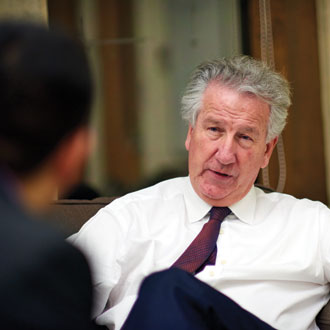Government will bear the cost of increasing indemnity ‘into the future’

Health minister David Mowat has said that the two-year commitment to reimburse GPs for rises to the cost of indemnity will continue in the future.
The minister made the remark in a parliamentary debate on GP indemnity costs today, where he was also questioned why GP indemnity is not covered in its entirety, same as for hospital doctors.
But in response, Mr Mowat said it was ‘not clear’ how extending the national scheme to GPs ‘would help’.
Mr Mowat did suggest however that GPs could expect to never see their indemnity premiums increasing again, as the Government had made a firm commitment to shoulder the full cost of this.
He told MPs: ‘GPs will not bear the cost of increasing indemnity – the Government will – and that is a commitment that we are holding to.’
He added: ‘That is a commitment that will go into the future.’
The GP Forward View pledged £30m a year would be paid to GP practices, starting next month, to cover the rises taking place in 2016/17 and 2017/18.
Mr Mowat emphasized that this would include the expected increases to costs to come from the Government’s recent announcement that discount rates, and therefore the size of compensation paid to clinical negligence victims, are to rise.
He said: ‘The position of the Government is that doctors will not have to pay as a consequence of technical change in discount rate.
‘We are working through how that is going to work in terms of both the central Litigation Authority and also the… three [medical defence organisations] to deal with that. Nevertheless it is a very significant cost in the context of all of the other pressures that the health system has.’
Alex Chalk, the MP for Cheltenham who brought the debate, said the short-term schemes were ‘excellent’ but ‘we need a long term solution’.
He said this should include looking ‘again at whether indemnity fees for certain areas of work, such as for example out of hours or minor surgery work, could be covered centrally’.
He said: ‘That would go a considerable way to ease the burdens on GPs and improve the attractiveness of the profession. And I understand that the DH is committed to exploring the potential of national clinical negligence schemes.’
But Mr Mowat said: ‘He made the point about potentially using the central scheme, which applies to hospital doctors, for GPs. That is an option but as he also said the three insurance organisations are non-profit making so it is not absolutely clear how that would help.’
The Government is already consulting on reforms that would cap the amounts lawyers can charge in small negligence claims, as well as on measures to attempt to resolve more cases out of court.
Pulse October survey
Take our July 2025 survey to potentially win £1.000 worth of tokens











